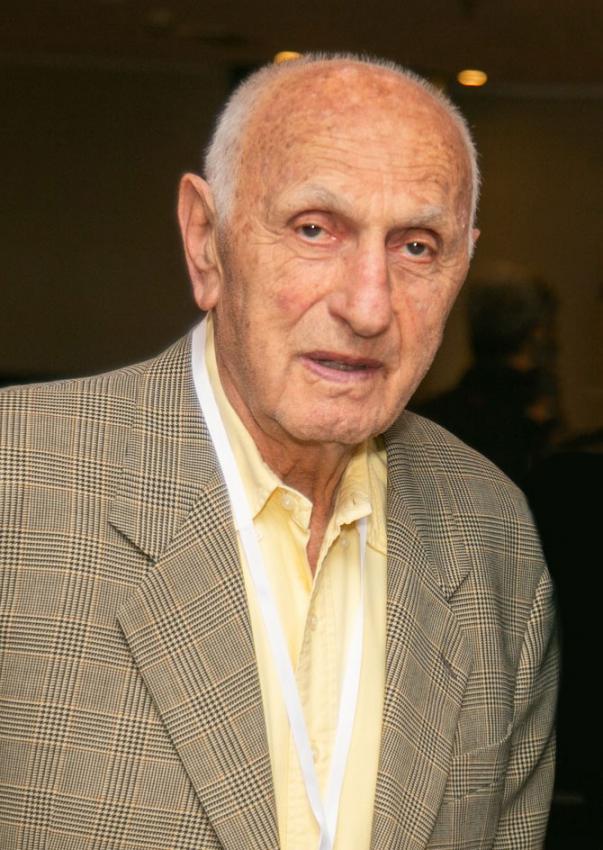Naftali “Tuli” Deutsch was born in 1931, in Kimyat, Ruthenia (then Czechoslovakia), and was one of nine brothers and sisters.
Tuli’s father was in charge of Jewish education in the area. He was also the treasurer of funds collected from abroad to help local Jewish children who could not afford to pay for their education. Tuli’s father studied with him at home for six to seven hours every day.
In the middle of April 1944, on the last day of Passover, the Jews in Naftali's hometown were ordered to pack a bag and report to the synagogue. From there, they were taken to the local ghetto Nagyszőllős. After several weeks, Tuli, together with most of his family, was deported to Auschwitz. Upon arrival at Auschwitz, Tuli was separated from his parents and siblings and sent to a labor camp. Tuli later learned that his father was murdered in the gas chambers. Two of Tuli's brothers were not deported to Auschwitz, instead they were taken to work in the kitchen and digging ditches for the Hungarian Army as forced laborers.
At the age of twelve, Tuli was transported to Mauthausen, where he was incarcerated in one of its sub-camps, Guzen II. In Guzen II, Tuli was assigned to work in the kitchen.
After World War II and liberation, Tuli made his way to Italy, and then immigrated to the Land of Israel. In 1956, he immigrated to the United States, becoming a successful businessman and philanthropist in California.
Tuli published his memoirs, A Holocaust Survivor: In the Footsteps of His Past, which describes his miraculous survival from five concentration camps as a teenager. Yad Vashem Publications later published a Hebrew translation of this book.
Additionally, Tuli donated and founded the “Esther Sara Deutsch Campus“, a Yeshiva (school for religious studies), in Los Angeles, for 700 students, as well as the first public Mikveh (ritual bath) in Los Angeles.

